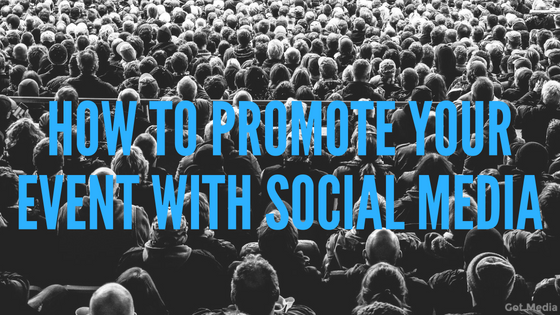Whether you’re hosting a conference, workshop, or a community event, social media is a great way to build buzz and promote your event before, during, and after. This allows you to get the most value from your efforts, and hopefully make it easier to host your next event.
Here a few techniques to try to leverage social platforms to maximize your event marketing efforts.
Before the Event
Social media is a great way to build awareness for your event and get people excited.
Build a Content Plan
To start, make a content plan specifically to the event to get organized. The posts should educate your followers about where and when the event is, what to expect, and drive traffic to an event website. You don’t want the event date to creep up on you and realize you haven’t done a sufficient job promoting it on social.
During this time, you can also create an event hashtag (or jump on an existing one if you’re a smaller part of a big event). This will help track engagement at the event and find users who are talking about it.
Email marketing
While social is huge, you can’t forget about email marketing. Send your email list updates about the event. Consider sending a discount code or a special offer they can redeem on the day of the event. Email allows you to send longer content like the event schedule and speaker content, that otherwise would be too much for social.
Encourage Partners to Promote
If your event has speakers, sponsors, or other event partners, encourage them to help push your event as well. If they can get their social media audience to be aware of your event, that will certainly increase your attendance and awareness.
During the event
Social media shouldn’t stop on the day of the event – it’s actually the perfect time to keep promoting and keeping your followers updated. Here are some ideas to keep people engaged:
Live updates via your social media networks
Use Instagram stories or Twitter to post live updates like videos or photos from the event. Interact with attendees who are sharing the event hashtag and repost their photos as necessary. If your event has speakers, share quotes from their talk.
Remember that you Instagram feed or Facebook page are not great places to be posting multiple times a day, so be choosy where you share your content.
Live Stream
Consider using Facebook or Instagram live to stream your event to your followers. This will allow anyone to feel like they’re part of your event. Make sure you set your phone or camera up on a tripod so it’s a quality experience for the viewer, not a shaky cellphone that dips out of frame.
Encourage Social Media Interactions
While at the event, remind visitors that there is an event hashtag they can post to. Consider creating photo ops to encourage people to take pictures and share their experience.
For larger events, consider broadcasting a live Twitter or Instagram feed on a screen with your event hashtag for everyone to see the posts people are sharing.
Use Questions & Polls
If the event includes speakers or Q&As, encourage those online to ask questions via social media, which can be asked at the actual event. This also makes it easier to get user questions than just passing around a microphone.
Polls can also help engage users during the event, like asking which panel they liked best or what they’re looking forward to next. Polls are available on Twitter, Facebook, and Instagram Stories.
After the event
One the event is over, you still have some work to do. This is the time to capture all the content from the event and continue engage attendees. Consider these tips:
Thank attendees via social media
Thank all speakers, sponsors, attendees via social, and add their handles or tags as appropriate. This will also encourage attendees to follow your speakers or sponsors and grow their audiences.
Do a Recap Post
Take the best photos and videos from the event, either from your account or content you captured from attendees, and do a big roundup post. This will keep the fun going in the week after, and provide great evidence of the event.
